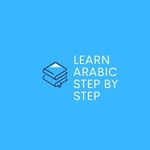A Simple Explanation of "من" for Asking "Who": The Arabic Interrogative Noun
Foreword
We've learned interrogative noun "مَا".
"مَا" is interrogative noun to ask about non-human thing (something that has no intellect).
"مَا" means "what".
Today, we are going to learn another interrogative noun in Arabic, namely "مَنْ".
A simple explanation about Interrogative noun "مَنْ"
مَنْ: اسْمُ اسْتِفْهَامٍ لِلْعَاقِلِ
man: interrogative noun for those who possess intellect.
A word by word translation
مَنْ (man): who
اِسْم (ism): noun
اسْتِفْهَام (istifhaam): interrogative (interrogation mark)
عاقِل ('aaqil): having an intellect (sense/mind)
When to Use 'من' vs 'ما'"
We use "مَا" when we ask a question about something that doesn't possess intellect, whereas "مَنْ" when we ask a question about those who possess intellect.
We've finished studying the basic theory of مَنْ (man), now let's move on our book Durusul Lughah al-'Arabiyyah volume 1, chapter 1.
Reading the texts and translating them
Let's open Durusul Lughah al-'Arabiyyah book 1, lesson 1.
In the picture above, we learn that interrogative noun (اسم استفهام) "مَنْ" is used to ask about those who have intellect or ask about human.
Hamzah istifhaam "أ" is used to ask human.
أَهَذَا وَلَدٌ؟ : Is this a boy?
لاَ, هَذَا رَجُلٌ : No, this is a man.
In the picture above, we learn that مَسْجِدٌ (mosque) is a thing. It has no intellect or it is non-human. So, for asking about it, we use interrogative noun مَا (maa).
تَاجِرٌ (a merchant) is human (one who have intellect). Therefore, for asking about it, we use interrogative noun مَنْ (man).
Animal is a thing that has no intellect, so we use interrogative noun مَا (maa).
Hamzah istifhaam "أ" is used to ask non-human.
أَهَذَا قَمِيْصٌ؟ : Is this a shirt?
لاَ, هَذَا مِنْدِيْلٌ: No, this is a handkerchief.
The translation
مَنْ (man): who
مَنْ هَذَا؟ (man hadha?): Who is this?
طَبِيْبٌ (tabiibun): a doctor
وَلَدٌ (waladun): a boy
طَالِبٌ (taalibun): a student
رَجُلٌ (rajulun): a man
تَاجِرٌ (taajirun): a merchant
كَلْبٌ (kalbun): a dog
قِطٌّ (qittun): a cat
حِمَارٌ (himaarun): a donkey
حِصَانٌ (hisaanun): a horse
جَمَلٌ (jamalun): a camel
دِيْكٌ (diikun): a rooster
مُدَرِّسٌ (mudarrisun): a teacher
مِنْدِيْلٌ (mindiilun): handkerchief
Summary
1. مَنْ is ism istifhaam (interrogative noun) to ask about those who possess intellect or human.
2. مَنْ means "who".
3. Interrogative particle "أ" or hamzah istifhaam is used to ask yes/no question about those who have an intellect (human) and things that have no intellect (non-human).
4. You've learned the following new Arabic vocabulary: طَبِيْبٌ, وَلَدٌ, طَالِبٌ, رَجُلٌ, كَلْبٌ, قِطٌّ, حِمَارٌ, حِصَانٌ, جَمَلٌ, دِيْكٌ, مُدَرِّسٌ, مِنْدِيْلٌ





No comments:
Post a Comment